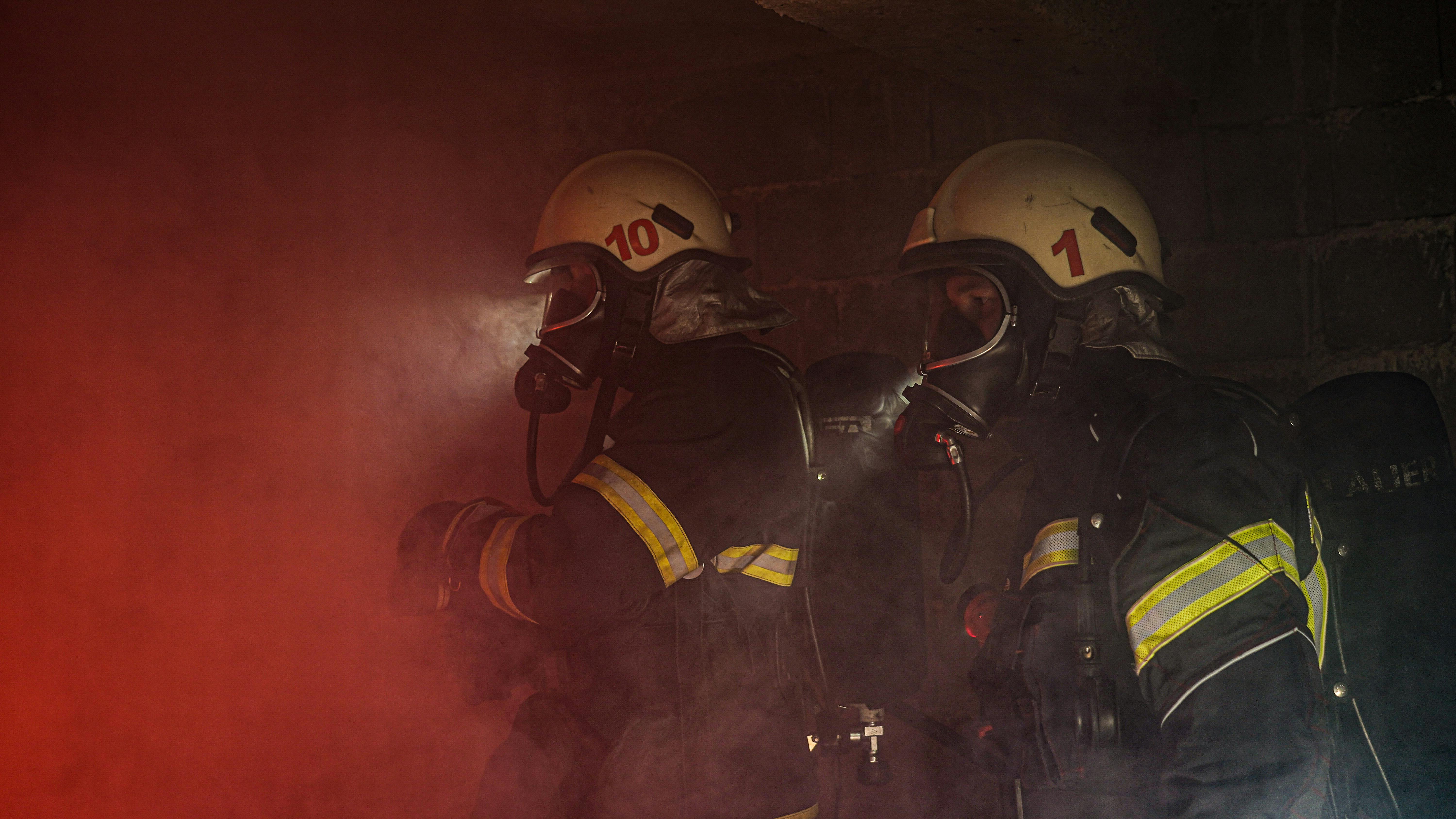On April 30, 2021, fierce wildfires swept through central Israel, forcing the Israeli government to declare a state of emergency. As the flames continued to spread, igniting concerns about the potential for further destruction, the Israeli Defense Forces (IDF) announced the deployment of search and rescue teams to join Israeli police and firefighters in combating the inferno. The fires threatened residential areas and historic sites, leading to widespread evacuations and the closure of major highways. International attention was drawn to the situation, with calls for assistance from neighboring European nations. Amidst these challenges, the Palestinian Authority offered to contribute manpower, while the Israeli government sought additional support from NATO allies. The ongoing crisis highlighted tensions within the region, with questions surrounding the role of external powers and the efficacy of local governance mechanisms in managing disaster responses.
The recent outbreak of wildfires in central Israel has raised significant concerns, highlighting the growing threat posed by climate change and its impact on vulnerable populations. These infernal storms have not only displaced thousands of residents but have also strained already stretched resources, leading to calls for international assistance. The situation underscores the interplay between geopolitical tensions and environmental challenges, with the Israeli government reaching out to neighboring nations for help. The intensity and spread of these fires are unprecedented, necessitating coordinated action across borders to mitigate the catastrophic consequences.
In the past year, Israel has experienced numerous instances of destructive wildfires, each presenting unique challenges. For instance, in 2021, Palestinian firefighters joined Israeli forces in battling a similar blaze near Jerusalem. This collaboration underscored the importance of regional cooperation in managing such crises effectively. However, this year's wildfires have surpassed previous incidents, fueled by extreme weather conditions and exacerbated by climate change. The magnitude of this current crisis demands immediate attention and comprehensive strategies aimed at preventing further damage and ensuring the safety of both Israelis and Palestinians alike.
The involvement of the Israeli spy agency, Shin Bet, in investigating the causes of these fires adds another layer of complexity. While the primary responsibility lies with Israeli authorities, there is a growing concern that external actors might be complicit in the fires' origins, potentially implicating Israel in ongoing disputes. This raises questions about the efficacy of diplomatic channels in addressing such issues and highlights the necessity of robust intelligence-sharing mechanisms to prevent such disasters in the future.
The international community's response to this crisis is crucial. Countries such as Greece, Cyprus, Croatia, Italy, and Bulgaria have expressed willingness to provide assistance, demonstrating the readiness of allies to step in when faced with humanitarian emergencies. As the situation continues to unfold, it remains vital for Israel to engage constructively with these partners, sharing information and coordinating efforts to minimize casualties and restore normalcy to daily life.
Ultimately, this wildfire event serves as a stark reminder of the interconnected nature of global challenges and the imperative for collective action in safeguarding human life and property. It also underscores the resilience of Israeli society in facing adversity while maintaining its commitment to peace and security within the region.
Israeli Fires Raise Concerns Amid Global Response
Israeli firefighters, backed by international experts, continue to battle fierce wildfires that have swept through central Israel. The incidents highlight the severity and frequency of environmental challenges facing the region, underscoring both the resilience and vulnerabilities of local authorities.
Atmospheric Conditions and Their Impact
The wildfires in central Israel are exacerbated by extreme atmospheric conditions, characterized by hot temperatures and strong winds. These elements combine to create ideal conditions for rapid spread and intensity, leading to the devastation witnessed so far. According to reports, the fires have burned out of control, forcing authorities to implement stringent measures to protect life and property.
International Cooperation and Assistance
In response to the crisis, neighboring countries have stepped forward to provide assistance. Greek, Croatian, Bulgarian, Italian, and Turkish firefighters have been dispatched to Israel, offering invaluable expertise and resources in combating the blaze. Additionally, European aviation companies have pledged the use of firefighting planes, aiming to bolster the already robust operations underway.
Government Response and Public Safety Measures
The Israeli government has been proactive in addressing the situation. Prime Minister Benjamin Netanyahu emphasized the urgency of the matter, calling upon the international community to join hands in combatting the wildfires. Authorities have imposed strict restrictions on travel within affected regions, ensuring the safety of residents and visitors alike.
Emergency services remain on high alert, conducting daily assessments and updates on the situation. The evacuation of several communities in the Jerusalem Hills underscores the gravity of the challenge, while the deployment of specialized equipment and personnel demonstrates the commitment to mitigating the impact of these destructive fires.
Public Reaction and Community Support
Community leaders and citizens have rallied behind the plight of those impacted by the fires. Social media platforms have become vital tools for disseminating information and rallying support. Local organizations, including the Hadassah Medical Center, have taken unprecedented steps to ensure patient care remains uninterrupted amidst the chaos.
The ongoing crises serve as a stark reminder of the interconnectivity of global issues and underscore the importance of collaboration between nations in times of mutual peril. As the fires persist, international cooperation continues to play a crucial role in managing this significant humanitarian challenge.
Conclusion
The Israeli wildfires pose a multifaceted threat, requiring comprehensive strategies involving governmental, private sector, and international partnerships. With continued vigilance and coordinated action, the goal is to safeguard lives and properties while minimizing the ecological damage inflicted by these relentless blazes. The resilience displayed by local authorities and the dedication shown by volunteers and professionals alike highlight the capacity of humanity to overcome adversity
As the fires continue to rage in central Israel, drawing international attention, policymakers must weigh the potential impacts on both Israeli sovereignty and regional stability. The recent incidents underscore the vulnerability of the region, highlighting how climate change exacerbates existing challenges. With temperatures soaring and drought conditions persisting, experts predict that these fires will intensify unless immediate action is taken.
International solidarity is crucial given the scale of the disaster. Countries like Greece, Cyprus, Croatia, Italy, and Bulgaria have already expressed interest in providing assistance, although the extent of aid remains uncertain. Given the severity of the situation, the Israeli government has called upon neighboring nations to contribute resources, especially in terms of firefighting expertise and equipment.
Moreover, the ongoing crisis raises questions about the efficacy of border controls and the potential role of external actors in managing regional conflicts. As the fires spread rapidly, the humanitarian consequences extend beyond immediate damage; displaced populations face significant health risks and logistical challenges. International cooperation is essential to prevent further escalation and mitigate long-term environmental degradation.
In the coming weeks, the international community must coordinate effectively to provide comprehensive support. This includes not just physical resources but also technical expertise, communication channels, and diplomatic engagement aimed at fostering dialogue and conflict resolution. Failure to act swiftly could lead to a cascade of negative repercussions, undermining regional peace and security.
Ultimately, the Israeli government's decision to seek international assistance underscores the gravity of the situation. It demonstrates a commitment to safeguarding the welfare of citizens and ensuring that no stone is left unturned in addressing the immediate threat posed by these unprecedented wildfires. As the world watches, the outcome of this crisis will undoubtedly shape the trajectory of regional geopolitics and environmental policies moving forward.










